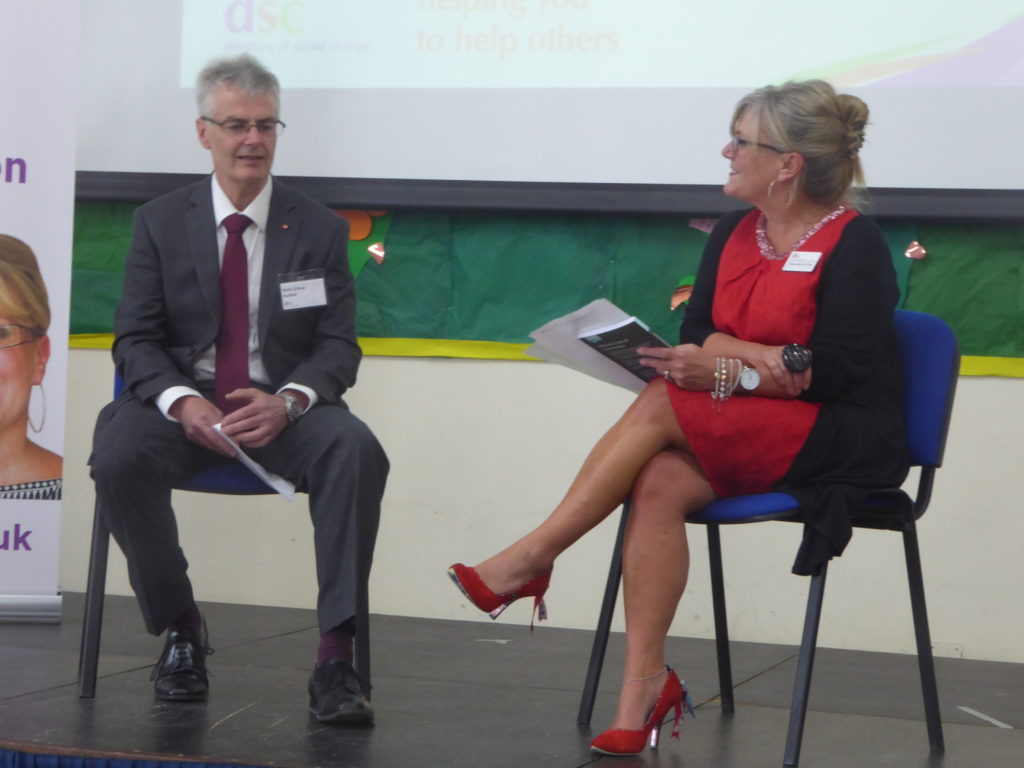Too much governance in education is shockingly poor
‘There is a huge variation in the quality of governance in education and far too much of it is shockingly poor. Effective governance makes such a difference to the quality of education and therefore the life chances of young people. It must be taken seriously.’ Mark A’Bear, author of Effective School Governance.
Debra Allcock Tyler, Chief Executive of Directory of Social Change, interviews Mark A’Bear about his experience as a school governor. This is an extract of the conversation that took place at the launch of Effective School Governance on 15 June.
What’s great about being a school governor?
It has been real job satisfaction. I’ve had a successful business career and won a number of company awards and accolades, but my greatest achievements have been in school governance where I feel able to say that I’ve made a positive difference to the quality of education for young people. Especially as Chair of Governors, I’ve learned so much; from communication skills, problem solving, organisation and planning, strategic thinking, … the list goes on.
The biggest challenges
Changing attitudes, expectations and creating an environment of high standards and high aspirations. Specific skills can be provided through training, but if people don’t recognise the need to change; that can be very difficult. In my first school, when I look back, the governors put in huge time and effort, but 80% of it was wasted. Every initiative was resisted, every idea shot down. But gradually, attitudes and personnel changed, and the school began to move forward.
Mark’s biggest successes
It would be easy to talk about a particular school that rapidly improved or a specific success, but actually it is about the individuals. The education system needs high quality leaders and head teachers in particular, recruiting them is a challenge. Spotting their potential and helping it to grow is a key success for me.
Essential skills for school governors
Strong governance is often about getting the right balance – the one between support and challenge or the balance between discussion and decision. When individual governors engage with the school, staff or pupils, the most productive approach is one which is balanced and considered.
The ability to build relationships with people and get the best out of them is also fundamental, being sure to utilise people where they can make a contribution and be most effective, identifying the leaders and identifying the risks.
Finding time to evaluate performance when most governors are volunteers
When most governors undertake a self-evaluation exercise they soon see how far the school has developed and the impact that governors have had. It is often surprising; what seem like small changes and improvements actually often have a bigger impact. They will also realise that their business careers have benefitted from their work as a governor.
Handling a poor performing governor
Sometimes a tough conversation is required. The disruptive governor is trickier, so I try and find ways of improving their behaviour, or making sure that they’re involved and busy.
If I felt that an individual didn’t respond to support and encouragement, I’d have no hesitation in finding a way for them to move on and find something they’re good at.
Dealing with the tensions between the school team and the governing body
As a Chair of Governors I’ve sometimes had to pour oil on troubled waters. It is also about prevention and swift intervention if you see an issue developing. If governors start to ask inappropriate questions you might need to say that it is inappropriate and explain why, a strong chair can prevent these issues in the first place.
Try to be a good model. If other governors can see how others respond to the right question asked in the right way; that always helps. Earn your stripes. Listen, learn, get a level of credibility.
The biggest mistake governing bodies can make is …
Not operating strategically and getting bogged down in operational matters that tread on the toes of the professionals. That undermine the relationship and leads to a lack of trust and teamwork.
About Mark A’Bear
Mark A’Bear has been a school governor for more than 18 years at 5 different schools. He is a National Leader of Governance with the National College for Teaching and Leadership and coaches, mentors and supports Chairs of Governors. He was awarded an MBE for his services to school governance in 2015.
Mark’s book Effective School Governance is the first publication to focus on the practical guidance school governors need rather than just the statutory framework. It is a reassuring and trusty aid for all governors as well as a tool for head teachers; it will help turn a pedestrian governing body into an effective team.

